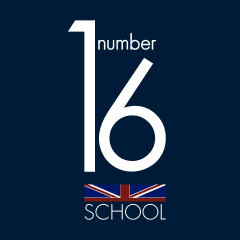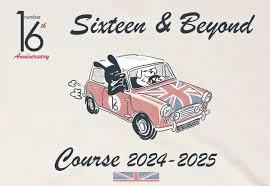Los auxiliary verbs o verbos auxiliares son un tipo de verbo que acompaña al main verb para cumplir una cierta función. Según el tipo de auxiliary verb que sea, cumplirá una función u otra.
A cotinuación, aprenderás sobre los diferentes tipos de verbos auxiliares, cómo usarlos correctamente y ejemplos prácticos para ayudarte a mejorar tu inglés. 👀
Los verbos auxiliares más comunes
El verbo “be”
El verbo be es importantísimo en inglés y también puede hacer la función de verbo auxiliar de varias maneras.
*Cabe remarcar que el verbo be es irregular
”BE” PARA CAMBIAR EL TIEMPO VERBAL A PAST/PRESENT CONTINUOUS:
“I am playing football now”
“You are eating lots of food.”
“We are getting very wet.”
“They were sleeping for ages.”
“She was shouting at everyone.”
“BE” PARA CAMBIAR FRASES A PASIVO:
“I was given some wáter by my friend.”
“They were eaten by my dad.”
“We were taken home by taxi.”
“I was shown out by the security guard.”
El verbo “do”
El verbo do es un verbo muy común en inglés y también tiene varias funciones como verbo auxiliar.
“DO” PARA CONSTRUIR FRASES NEGATIVAS
“I don’t have any money left.”
“He didn’t want to go to the cinema.”
“They didn’t have any time to go shopping.”
“DO” PARA HACER FRASES INTERROGATIVAS:
“Do you study English every day?”
“Does he play football at the weekend?”
El verbo “have”
El último de los verbos auxiliares más importantes es el verbo have. El verbo have tiene una función principal que es la siguiente:
“HAVE” PARA FRASES EN TIEMPO VERBAL PERFECTO
“I have played lots of football in my life.”
“He had been to the cinema already.”
“They had been waiting for almost an hour.”
Otros verbos auxiliares
Estos 3 verbos son los verbos auxiliares más utilizados en inglés y también los únicos que pueden actuar como verbo principal también, pero a continuación vamos a ver algunos otros que os pueden parecer interesantes:
SHOULD
El verbo should lo utilizamos para aconsejar.
“I should study harder for my next exam.”
“He shouldn’t play video games all night.”
WILL
El verbo will lo utilizamos para conjugar el verbo en el presente.
“I will go on holiday next summer.”
“He won’t go out at the weekend.”
MIGHT
El verbo might lo utilizamos para sugerir una explicación o situación posible.
“He might come to the birthday party if it’s not rainy.”
“I might make myself a sandwich for tea.”
Auxiliary verbs ejemplos
Los ejemplos son una excelente forma de aprender cómo utilizar correctamente los verbos auxiliares en oraciones complejas y comprender mejor su función.
Lee la siguiente lista de ejemplos de auxiliary verbs para ver cómo se usan y cómo puedes aplicar en tus propias oraciones:
- It looks like there might be a storm.
- Will you be able to get here on time?
- Should I go away this summer?
- You hadn’t cooked me anything for lunch.
- Didn’t he arrive before you?
- We didn’t go on holiday last summer.
¿Conocías todos los auxiliary verbs? ¡Seguro que sí! Te recomendamos leer el post sobre imperativos en inglés para ir dominando los verbos en inglés poco a poco y el de voz pasiva en inglés.
Si necesitas mejorar el inglés en poco tiempo, en Number 16 tenemos cursos intensivos de inglés en Valencia.
SEE YOU IN THE NEXT POST! 🖐
Consejos para estudiar inglés en el extranjero
Descubre los beneficios y opciones para estudiar inglés en el extranjero, con consejos para elegir programas y prepararte para la experiencia
Ejercicios prácticos para aprender los condicionales en inglés
práctica condicionales ingles
SUMMER EXPERIENCE - CHECKLIST
Revisa el Checklist para la Summer Experience 2024 de Number 16




